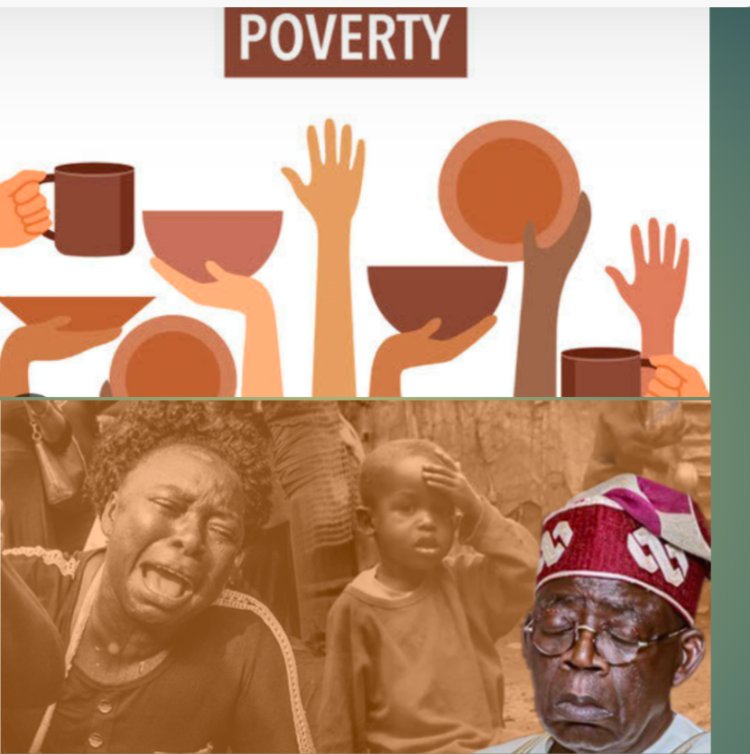Palliatives Stampede: Hunger, Poverty as Potent Weapons For National Destruction

Editorial// FocalPoint Reports
By Ezekiel Kagbala
The reality that President Bola Ahmed Tinubu had to cancel his scheduled events in Lagos on Saturday to honour the stampeded victims in Anambra State and the Federal Capital Territory as well as those of Oyo State shows that Mr. President is sensitive to what goes on in the country and should be commended, at least for that singular gesture.

The fact however remains that the President's reaction hasn't changed the reality on ground that some favoured elites who became billionaires from government favoritism have impoverished Nigerians to the extent of rice being thrown at them like chickens in a poultry, being reared for slaughter purpose whenever the need arises.
But one big lesson from the Anambra, FCT and the Ibadan, Oyo State commotion, as an aftermath of palliatives distribution, is that President Bola Tinubu urgently needs to break new grounds and take Nigerians out of the woods. The rice and beans syndrome must end as Nigerians deserve better social welfare programmes to lift the downtrodden out of poverty and end the hunger that is presently being weaponized and used as instrument for national destruction, stampede and death.
Truth be told, it is high time President Tinubu sees hunger and poverty as indeed, great challenges confronting Nigeria. And these noticeable challenges can be viewed as potent weapons that perpetuate cycles of inequality, conflict and instability.
Needless restating the obvious that though Nigeria is one of the largest economies in Africa, the country has one of the highest rates of poverty in the world. A significant portion of the Nigerian population lives below the poverty line, which exacerbates social inequalities and limits access to basic services.
Like a chain reaction, poverty produces hunger, which then gives birth to hopelessness and despair, and those factors are potent weapons for fueling conflict, as competition for scarce resources often leads to violence.

In Nigeria, this is evident in the regions mostly affected by the Boko Haram insurgency and deadly clashes between herders and farmers, where economic desperation has been driving individuals to join militant groups.
Poverty and hunger are attracting a maximum level of national disgrace; a few days ago, no fewer than 27 people were reported dead following a stampede during a Christmas rice distribution event in Okija, Ihiala Local Government Area of Anambra State.
Reports had it that the unfortunate incident occurred at a charity programme organised by Chief Ernest Obiejesi, chairman and chief executive officer (CEO) of Nestoil and the founder of the Obijackson Foundation, and Chieftain of the All Progressives Grand Alliance (APGA), indeed the man is a politician and investor.
The event descended into chaos as overwhelming poverty-affected individuals formed a large crowd to scramble for rice, resulting in a stampede where Many lives were lost. Painfully Nigerians are impoverished, bruised with hunger beyond reasoning. The fear of not getting that rice seemed greater the their lives.
According to the report, the stampede left several injured, with victims rushed to nearby hospitals for treatment, while the bodies of the deceased were transported to the morgue.
"Among the victims were relatives of an aide to Governor Prof. Chukwuma Soludo, who reportedly lost two family members in the incident".
In Ibadan South-west Nigeria, similar stampede had barely one week earlier left over 30 children dead at a holiday event for children, where organisers had promised to hand out N5,000 ($3.20) each to 5,000 children.
Indeed, the outgoing December has actually highlighted the painful effects of hunger and poverty bedeviling our country.
The Africa Report, while beaming its searchlight on the Ibadan incident, affirmed that the organisers of the event, WINGS Foundation – a non-governmental body that supports women and girls – following its announcement to hand out N5,000 ($3.20) each to 5,000 children had, before 5 am on the scheduled date, hosted thousands of people – children and their parents – who had thronged the Islamic High School, Basorun venue in Ibadan. Consequently, the crowd forced Agidigbo FM, the radio station promoting the event, to start announcing repeatedly that people should stop going to the venue.
Hunger and poverty in Nigeria are not just social issues; they are intertwined with the country's stability and development. Addressing these challenges is crucial for fostering peace, promoting economic growth, and improving the overall quality of life for millions of Nigerians.
Sustainable solutions will require collaboration between the government, civil society, and international partners.
On the part of the Government, sustainable response in addressing hunger and poverty requires comprehensive policies that focus on economic development, social safety, and agricultural support.
But the endemic corruption in the nation coupled with mismanagement are the recurring factors capable of hindering effective implementation.
To get out of the woods, President Bola Tinubu has on his laps arduous task of addressing
the identified challenges headlong without bothering to know whose ox is gored. Until the President acts decisively, no visible hope seems to lie in the horizon.














